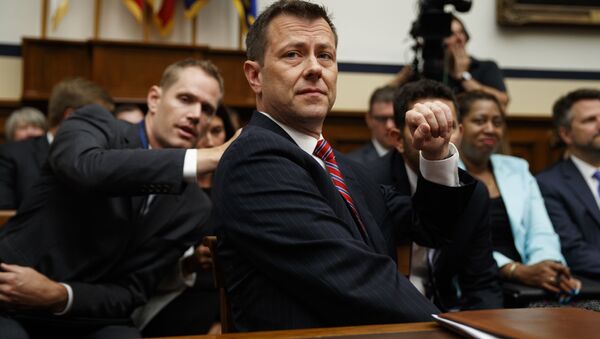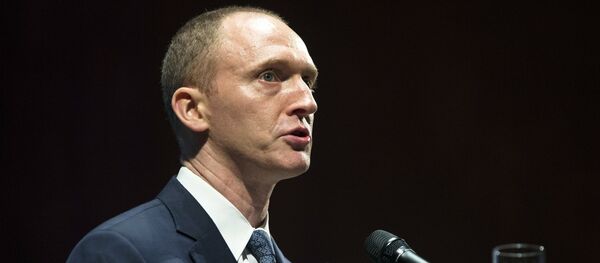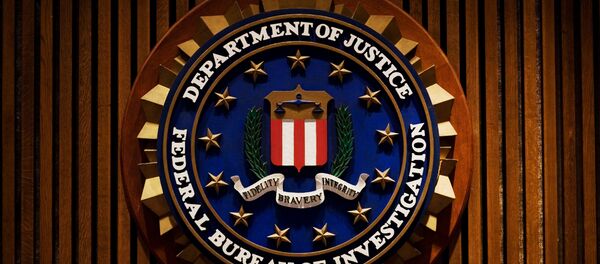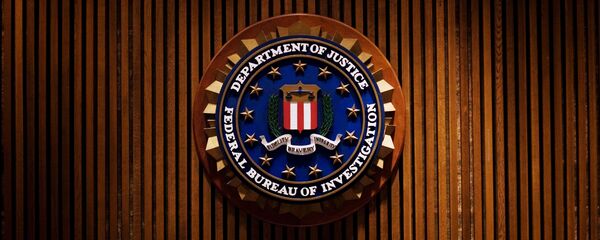The agent was at the center of the investigation into Hillary Clinton's private email server and then moved on to the investigation into then-candidate Donald Trump and his campaign's potential collusion with the Russian government during the 2016 US presidential race, which pitted Trump and Clinton against each other in competition for the nation's highest office.
In a fiery exchange, Rep. Trey Gowdy (R-SC) reminded attendees that Strzok was "lead investigator, you originated the [Russia] investigation, you're the point of contact, you drafted the document, and here you are before you interviewed a single solitary witness saying ‘F Trump.'"
— Alex Rubinstein (@RealAlexRubi) July 12, 2018
"Then, that same day, your, um, ‘colleague' Lisa Page wrote, ‘Maybe you're meant to protect the country from that menace [Trump.]' And you responded saying, ‘I can protect the country at many levels,'" Gowdy said.
Republicans generally suggest that the collusion investigation and the FBI's recommendation that criminal charges not be filed against Clinton were both politically motivated.
Democrats throughout the hearing objected to its happening in the first place. In their view, it was an attempt by Republicans to cast doubt on special counsel Robert Mueller's probe into allegations of collusion between the Trump campaign and Russia.
— Alex Rubinstein (@RealAlexRubi) July 12, 2018
Mueller on May 17, 2017, took over the FBI counterintelligence investigation started by Strzok the previous summer, on July 31, 2016. Mueller did so under the authority of investigating "any links and/or coordination between the Russian government and individuals associated with the [Trump] campaign," as well as "any other matters [that] arose or may arise directly from the investigation."
So far, the latter mandate has resulted in criminal charges against 19 individuals, mostly for money laundering and other financial crimes and mostly unrelated to the election, and the prospect of collusion remains as dubious as ever. Things remain equally opaque after Strzok's public testimony, as he refused to comment on anything related to the Russia probe since it is an ongoing investigation. In the hearing, he likened Russian interference into the 2016 US election to a "direct attack" on a "military base."
Strzok came into the public spotlight last month following a June 11 report from the Office of the Inspector General (OIG) focusing on text messages on FBI-issued devices between he and fellow agent Page, with whom he was having an extramarital affair at the time.
— Alex Rubinstein (@RealAlexRubi) July 12, 2018
Strzok revealed in testimony on Thursday that he was able to strike a deal with the IG over the information on his personal phones and emails and did not turn them over to be reviewed. Instead, he reviewed them himself with the intent of turning over any messages pertaining to FBI business, but said that there was none. He admitted during the hearing that he himself made the call on what was personal and what was professional.
— Fox News (@FoxNews) July 12, 2018
While the report's author IG Michael Horowitz, as well as Strzok himself, maintain that there was no bias at work, they admit that the text messages "gave the appearance of bias." Strzok was removed from Mueller's team after the special counsel became aware of them.
"In particular, we were concerned about text messages exchanged by FBI Deputy Assistant Director Peter Strzok and Lisa Page, Special Counsel to the Deputy Director, that potentially indicated or created the appearance that investigative decisions were impacted by bias or improper considerations," the OIG report says. "Most of the text messages raising such questions pertained to the Russia investigation, which was not a part of this review." The report instead focused primarily on bias around the investigation into Hillary Clinton's use of a private email server.
Such messages included Strzok's infamous promise to Page on August 8, 2016, that "We'll stop" Trump from becoming president.
— CBS News (@CBSNews) July 12, 2018
During the hearing, Rep John Ratcliffe (R-TX) highlighted a message sent from Strzok to Page on May 9, 2017, the day that Trump fired former FBI Director James Comey. "We need to open the case we've been waiting on now while [Andrew McCabe] is acting [director]." It is likely that he was referring to a criminal case, since the investigation into collusion had long been underway, but Republicans pushed back on the notion that FBI leadership should influence such a decision.
Republicans have been distrustful of Strzok's actions in the Russia investigation because of the text messages that have been uncovered. One was highlighted by Senator Lindsey Graham (R-SC) on June 18 while Horowitz was facing his own congressional hearing. A week after promising Page he'd stop Trump, Strzok texted her, "I want to believe the path you threw out for consideration in [Deputy FBI Director Andrew McCabe's] office, that there's no way he gets elected, but I'm afraid we can't take that risk. It's like an insurance policy in the unlikely event you die before you're 40."
Page, for her part, refused to comply with a House subpoena on Wednesday, claiming that she needed more time.
Neither side was swayed by the hearings. On Twitter, some have become only more impressed with the FBI's work, calling for Strzok to run for president, while those skeptical of the Mueller investigation are more emboldened in their belief that Strzok's bias against Trump lies at the heart of the Russiagate narrative.





